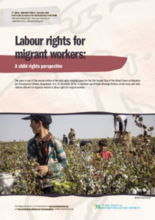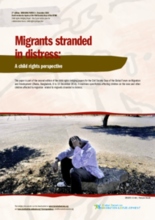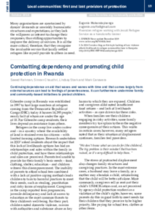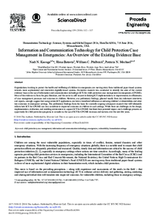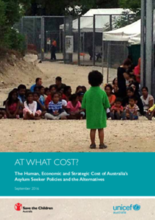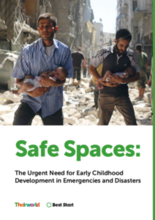Displaying 351 - 360 of 530
This paper is the sixth of the second edition of the child rights bridging papers for the Civil Society Days of the Global Forum on Migration and Development (Dhaka, Bangladesh, 8 to 10 December 2016).
This paper is the third of the second edition of the child rights bridging papers for the Civil Society Days of the Global Forum on Migration and Development (Dhaka, Bangladesh, 8 to 10 December 2016).
These series of 6 papers are the second edition of the child rights bridging papers for the Civil Society Days of the Global Forum on Migration and Development (Dhaka, Bangladesh, 8 to 10 December 2016).
According to this article from Forced Migration Review, when the majority of aid comes from external sources, it can cause those who receive the aid to feel powerless.
Organizations working to protect the health and wellbeing of children in emergencies are moving away from traditional paper-based systems towards more sophisticated and innovative digitally-based systems. Formative research was conducted to identify the state of the current evidence base on the use of information and communication technology (ICT) for child protection case management in emergencies (CPCME).
This report by Save the Children Australia and UNICEF Australia explores the human, economic and strategic cost of Australia’s current policies which seek to deter asylum seekers from migrating to Australia by sea.
In this video, Newsy discusses UNICEF's recent report that there are now 50 million displaced children worldwide.
In Sierra Leone, as in conflict and postconflict settings around the world, youth are coping with their exposure to violence during conflict as well as the poverty and displacement that follow war and the stigma that can persist long after involvement with armed groups has ended.
This paper from Best Start (a global campaign for Early Childhood Development led by children’s charity Theirworld) emphasizes the need for holistic early childhood development (ECD) programs - Safe Spaces - for young children in emergency situations.
This article from the Guardian sets forth the challanges EU countries face in providing social services for asylum seeking children.

